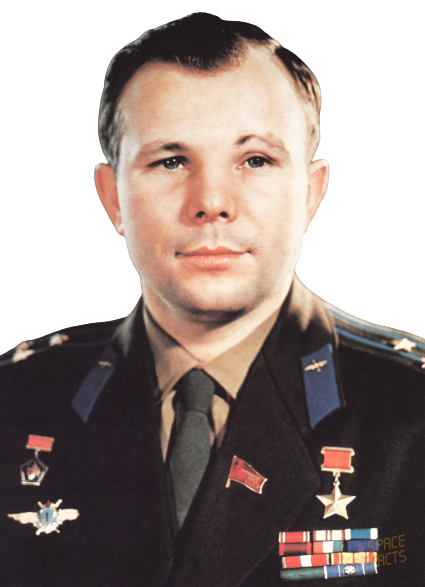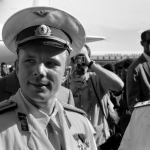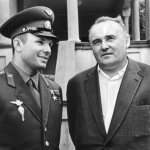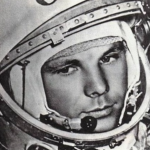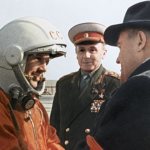
13.01.2023
Having flown into space and received worldwide recognition, Yuri Alekseyevich Gagarin found himself among the elite and immediately felt all the pleasures of life at the top of the Soviet social pyramid. The population was still only promised to build communism in twenty years, and the party leaders, in fact, got it by going beyond the traditional economic relations from the pre-war times.
A lot of documents, now declassified, have been preserved about the gifts and privileges the cosmonauts received from the authorities in preparation for and after the flight. Some of these documents are stunning, but not because there is a sense of good envy or, say, pride in the Soviet state – rather, on the contrary, they serve as evidence of an era when a citizen depended on the system even for everyday little things.
Let us start our review of documents with the “Provisions on the Cosmonauts of the USSR”, approved on August 3, 1960 by the Decree of the Council of Ministers of the USSR No. 866-361ss:

“1. The cosmonaut detachment shall be formed from the citizens of the Soviet Union who have voluntarily expressed their desire to participate in space flights. ‘…’
6. Astronauts from the day of the order of the Commander-in-Chief of the Air Forces of the USSR Ministry of Defense to enroll in the squadron are to serve at the Center in the following staff positions: listener-cosmonaut, cosmonaut, instructor-cosmonaut, senior instructor-cosmonaut.
Upon completion of the training course at the Center, passing the established exams and tests, cosmonaut trainees are assigned to full-time positions of “cosmonaut”.
Astronauts who completed their first space flight are assigned the title “Cosmonaut 3rd Class”, those who completed their second flight – “Cosmonaut 2nd Class”, those who completed their third flight – “Cosmonaut 1st Class”.
Only cosmonauts who have a class may be appointed to the positions of ‘cosmonaut instructor’ and ‘senior cosmonaut instructor’. ‘…’
10. Trainee cosmonauts and cosmonauts appointed to staff positions shall be enrolled in all types of allowances at the standards of jet aviation flight personnel.
12. Official salaries shall be paid to cosmonauts in the following amounts (per month):
- cosmonaut trainee – 3,000 rubles,
- a cosmonaut – 3,500 rubles,
- instructor-cosmonaut – 4,000 rubles,
- senior instructor-cosmonaut – 4500 rubles.
In addition to that the cosmonauts having the class are paid monthly additionally: for the 3rd
class – 10%, for the 2nd class – 15%, for the 1st class – 20% to the salary by grade. ‘…’
14. For each completed flight on a rocket-powered aircraft in outer space the cosmonauts are paid a lump-sum cash award in the amount from 50 to 150 thousand rubles. Specific amount of remuneration for each completed flight is established by the decision of the Council of Ministers of the USSR on the proposal of the Interdepartmental Scientific and Technical Council for Space Research at the Academy of Sciences of the USSR and the Ministry of Defense of the USSR. In the event of the death of a cosmonaut during a space flight, the said remuneration shall be paid to his legal heirs. ‘…’
16. When calculating length of service for a pension one month of service in the variable composition of cosmonaut trainees is counted for two months, and one month of service in other positions of cosmonauts – for 3 months.
Appointment of seniority pension to cosmonauts and cosmonaut-instructors shall be made regardless of the age of the retirees.
17. Assignment of pensions, payment of a lump sum to cosmonauts and cosmonaut-instructors, as well as their families, shall be made in accordance with the Resolution of the Council of Ministers of the USSR of 27 July 1959 #876 (on pensions of servicemen of the Soviet Army).
In this case the amount of pension and lump sum allowance for cosmonauts and cosmonaut-instructors shall be determined with an increase of 20% from the amount provided for the generals and admirals of Soviet Army and Military Navy. ‘…’
18. Astronauts of all categories shall be provided with separate apartments at their place of service.
19. The family of a deceased cosmonaut retains the right to living quarters if they are not in a closed garrison. In the latter case, at the request of the USSR Minister of Defense, the cosmonaut’s family shall, at their choice, be provided within six months with living quarters in other cities”.
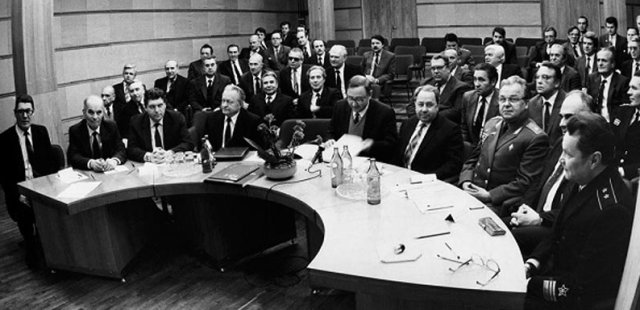
What should we look for in this document? First of all, the amount of salaries. Even a cosmonaut (i.e. one who had not yet passed the specialty examinations) received a minimum of 3,000 rubles – 300 rubles after the 1961 denomination. At the same time, the average wage in the country was 81 rubles, and the average pension was 47 rubles. Research Institute of Labor in the mid-1960’s established that a more or less normal level of consumption of the Soviet citizen could afford with the monthly income per family member not less than 150 rubles (at a critical minimum of 50 to 55 rubles per person, depending on the region), that is, a young family with one child to be considered “rich” had to earn 450-500 rubles. However, in reality, according to statistics for 1965, only 4% of families in the Soviet Union had an income above 100 rubles per person; the rest actually survived from paycheck to paycheck, which was further complicated by rising consumer prices (from 1961 to 1966, the prices of major commodity groups increased by an average of 1.6 times). It turns out that any pilot, regardless of his qualifications and education, having joined the cosmonaut squadron as a student, immediately brought his family to a very decent level of income, comparable to the family level of a leading engineer or a doctor of the highest category. At the same time, he kept his clothes allowance, free meals in the unit, free transportation, and much more. Work experience was calculated on the principle of one year for two, then – for three; in the future the general’s pension with a multiplying factor was accrued. His family received an apartment, and the living space was retained by the family members even in case of death of a cosmonaut.
But that’s not all! After the flight, Yuri Gagarin received a one-time bonus of 15 000 denominated rubles (the salary of a qualified worker for eight years!), And his monthly salary with all allowances, according to Kamanin, increased to 640 rubles (the salary of a professor or chief designer). One would think, what else is needed? However, we find another remarkable document in the archives:
“Order of the Council of Ministers of the USSR on gifts to Yu. Gagarin
No. 1037pc
April 18, 1961.
SECRET .
1. On behalf of the USSR Government to present to the first Soviet pilot-cosmonaut Major
Gagarin and his family a Volga car, a dwelling house, furniture and equipment in accordance
with the Appendix.
Charge the associated costs to the reserve fund of the USSR Council of Ministers.
2) Oblige the USSR Ministry of Defense (Mr. Malinovsky) to allocate to Major Gagarin Yu.
The Chairman of the Council of Ministers of the USSR
P. Khrushchev.”
And here is what the appendix looked like:
“Appendix to the order of the Council of Ministers of the USSR of April 18, 1961 # 1037rs1. Furnishing the bedroom, dining room, children’s room, study, kitchen
2. A Volga automobile
3. Rubin” television set
4. Radio “Lux”
5. Washing-machine
6. Refrigerator
7. Vacuum cleaner
8. Carpet rugs.
9. Piano
10. Bedding – 6 sets. Blankets – 2 pcs.
For parents t. Gagarin Yu.
1. A three-room prefabricated house
2. television set
3. Radio
4. Furniture for three rooms
Equipment for Yuri Alexeyevich Gagarin
1. A demi-season coat
2. A light summer overcoat
3. Coat
4. Suit – 2 (light and dark)
5. Shoes – 2 pairs (black and light)
6. White shirts – 6.
7. Hats – 2
8. Socks – 6 pairs
9. Silk underwear – 6 pairs
10. Panties, T-shirts – 6 pairs
11. Handkerchiefs – 12.
12. Ties – 6 pcs.
13. Gloves – 1 pair
14. electric razor – 1
15. Two sets of military uniforms (ceremonial and casual)
16. Suitcases – 2Outfit for wife – 1
1. Demi-season coat
2. Summer overcoat
3. Coat
4. Dresses – 3.
5. Black suit
6. Hats – 2
7. Headsets – 6.
8. Stockings – 6 pairs
9. Shoes – 3 pairs
10. Ladies handbags – 2
11. Gloves – 2 pairs
12. Scythes – 2 (woolen and silk)
13. Blouses – 2 pcs.
14. Woolen sweater – 1 pc.Outfit for children
1. Children’s bed
2. Baby carriage
3. Woolen dresses – 4
4. Coats – 2 (winter and summer)
5. Hats – 2 (winter and summer)
6. Shoes – 4 pairs
7. Underwear – 6 pairs
8. Dolls, toys
9. Children’s dowry.
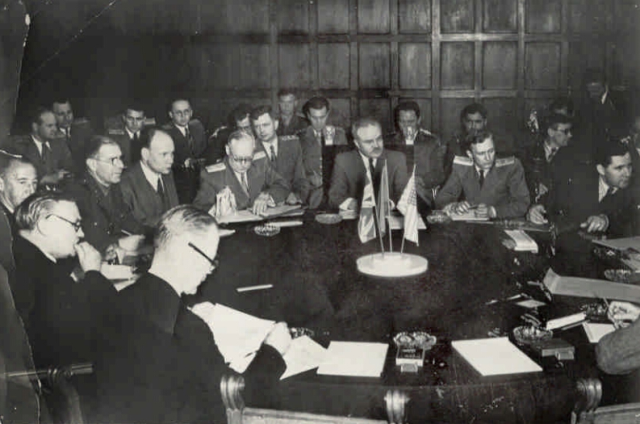
The question arises: why did an astronaut with a bonus equal to the cost of three Volgas (GAZ-21) and a professor’s salary need to prescribe a set of things – from a TV set with a washing machine to underwear and socks? The explanation, apparently, is that earning good money back then was not enough. The country was in poverty, and truly quality things remained in short supply: they could be obtained either by standing in line, or by making friends with representatives of the trade, that is, by going through a series of humiliations. A flying cosmonaut did not have to humiliate himself in front of some warehouse bosses, so he got immediate access to the government “distributors. And one should not think that such a list was compiled only for Gagarin – all the cosmonauts of the first squadron received a gift set.
Of course it makes no sense to condemn the Soviet government for its generosity toward the cosmonauts, especially the very first, but we should remember that there were enough dangerous occupations: military pilots, submariners, rocket testers, miners, industrial climbers, polar explorers – all of them, of course, received extra pay for “harmfulness,” but no one thought to provide them with out-of-ordinary apartments, things according to the list and huge bonuses. There was a moment of social injustice, which fact was hidden from the public behind the veil of secrecy, but which reached the people in the form of rumors, voluntarily or involuntarily spread by industry workers. And at the level of official propaganda it was strongly declared, including by cosmonauts themselves, that they, unlike American astronauts, fly to the orbit not for money, wealth or fame, but for the idea of extraterrestrial expansion, scientific
research and socialist patriotism. In other words, here the ground was created for doublethink, which can corrode any moral imperatives.
We have come to a very important point in the conversation about Gagarin. He could not refuse gifts and privileges, even if he really wanted to. Moreover, the “Gagarin effect” also consisted in the fact that it was considered an honor to fulfill any wish or request of the first cosmonaut. And here was a situation of choice, which had to do with morality, ethics, and justice: Gagarin had every opportunity to take it for granted and rest on his laurels, but preferred hard work and active public activities, as if he really believed that benefits and fame were given to him in advance, that they still have to be worked out – not only on Earth, but also in space. Gagarin’s whole life testifies: he was absolutely sincere in his desire to be useful to people, bringing the world described in “Andromeda Nebula” and promised at the 22nd Congress of the CPSU.
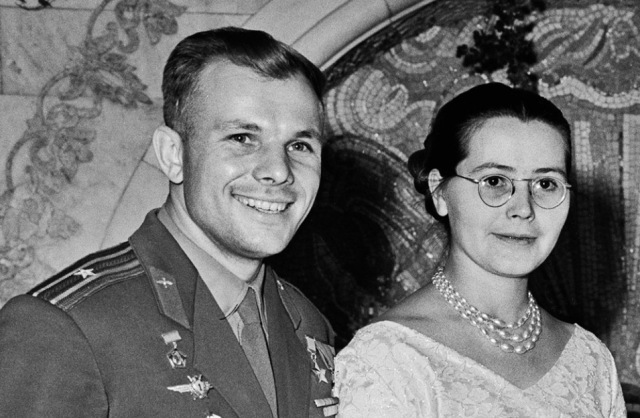
When the wound on his head more or less healed, Yuri Alekseyevich and his wife again went on a trip abroad. Before that, however, Gagarin asked the party organization of the Cosmonaut Training Center to make a decision about the incident. Let’s turn to the memoirs of Lieutenant General Nikolai Petrovich Kamanin:
“November 14 [1961].
Today I spent more than four hours studying with the cosmonauts. Everyone was present except Bykovsky and Belyaev. The first two hours were spent in party order sorting out the personal cases of Gagarin and Titov. The Air Force Command had no intention of parsing the behavior of Gagarin and Titov at the resort in the Crimea, and the latter also in Moscow and in Romania. The reason for the discussion was Gagarin’s statement to the party organization of the CPC with a request to review his behavior at the resort and to make appropriate decisions. Gagarin and Titov, who spoke, mostly correctly reported their behavior at the resort. They admitted cases of alcohol abuse, frivolous attitude to women, and other misconduct. Yura faithfully described the circumstances of his injury, but, apparently concerned for Valya’s peace of mind, claimed that when he went into the room from which he jumped out, he did not know that Nurse Anya was there, and that he only wanted to play a joke on his wife by hiding from her. Although I am convinced that the motive for visiting the room was different, I did not insist on it. Gagarin’s version cannot be considered at all unbelievable, and to some extent it softens the incident itself and will not be a reason for discord in the family. All the cosmonauts spoke along these lines: “Gagarin and Titov behaved lightly; they forgot who they are now and had no right to do such foolish things. Titov, in particular, took a beating. It was said that he got conceited, cut himself off from the team, failed to report on his trips abroad and the work of the 22nd Congress, etc. Gagarin and Titov (the latter to a lesser extent) acknowledged the comrades’ criticism as fair and promised not to make such mistakes and foolishness in the future. By the way, on the same day, as if to console him, Gagarin was awarded a medal of the International Aeronautical Federation for the records he had set.
Two weeks later, on November 28, the IL-18 with Gagarin’s delegation flew from Vnukovo to India with a two-hour landing in Tashkent. On November 29, at Palam airfield near Delhi, the cosmonaut and his escort were met by Indira Gandhi (she was not yet prime minister at the time, but represented him), ministers, ambassadors, members of parliament and correspondents. From the airfield everyone went to the palace to see the Indian political leader, Jawaharlal Nehru. After the introduction to him there was a press conference, followed by appearances on Indian radio and television. The next day I went to the gliding club at Safdar Jang Airport, visited President Rajendra Prasad, held rallies at Delhi University and Ramlila Ground, and in the evening I attended a reception at the Soviet Embassy. Everything seemed to be as usual, but Kamanin wrote in his diary: “The press, radio and television covered Gagarin’s visit well, but compared to England, the mass meetings and the reaction of the press were immeasurably less. Why? Maybe poorly prepared for the visit? But another option is also possible: the “Soviet moment” was coming to an end, not only Soviet citizens were flying in the space, but also American ones, and besides Gagarin there was also Titov, so in Delhi there was not that sharpness of perception of the future, which was felt in spring, which led to decreased interest.
From Delhi, the delegation went to Lucknow, then to Bombay and Calcutta. In the first two cities, Yuri Gagarin spoke mostly about the 22nd Congress of the CPSU and the program adopted to build communism in one country, in Bombay he was advised to pay more attention to space exploration, because political affairs do not seem to arouse interest among Indians. And here Gagarin, of course, saddled his “favorite horse. As before, he structured his speech in such a way that his listeners would feel their involvement in extraterrestrial expansion: “I would like to take part in a space flight with a group of young cosmonauts of different nationalities – Russians, Indians, Americans… It would be a peaceful scientific spacecraft. Let’s all strive together to make this dream come true. After all, is not our Earth such a spaceship that is hurtling through the vastness of the universe? This ship belongs to all of us, to all nations, and its crew should live in peace and friendship”.
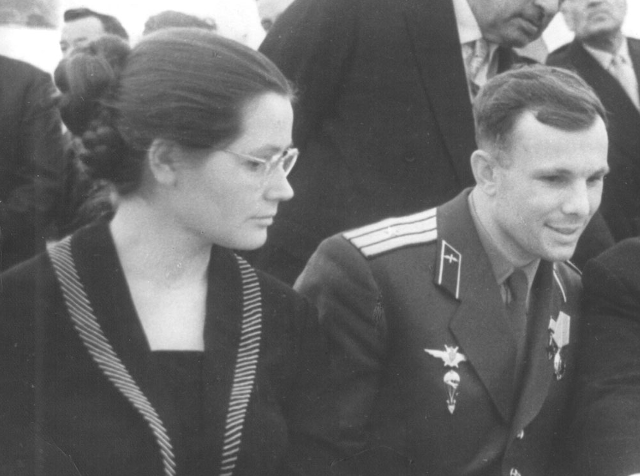
In terms of reception, Calcutta stood out the most. Lieutenant General Kamanin recorded in his diary:
“December 4 [1961]. ‘…’
At 3:00 p.m. we went to a rally that drew over 80,000 people. All the streets we drove through were very crowded: on sidewalks, in windows, on balconies, rooftops, and trees. In just the first six hours of our stay in Calcutta, over a million people saw and greeted Gagarin. People in Calcutta greeted Gagarin as fervently as they had greeted England and Cuba. ‘…’
People continue to stand outside the palace, in the streets and around the clubhouse. People on their own initiative stand for hours to see for a moment the face, the smile, the gesture of the first citizen of the universe. Watching the crowds of millions of people so enthusiastically greeting Gagarin, I often remembered my youthful impressions of a cheapo picture depicting the meeting of Jesus Christ with the people. I remember the bright face of the Godhead in the center and a dozen or so astonished and questioning faces in the background. Yes, the son of God was not greeted well on earth. The fantasy of people in those distant times did not go further than the miracle of the five loaves and five thousand hungry people, fed by Christ with these same loaves. Our Gagarin, on the other hand, quenches the thirst of thousands of alien crowds with his appearance, and this is perceived by all as something quite natural. The centuries will pass, mankind will firmly settle near-solar space, and on all the planets where there is a man, the name of Yuri Gagarin – the discoverer of outer space and the first citizen of the universe – will never be forgotten. ‘…’ I remember that on April 11, 1961, I wrote in my diary: ‘Tomorrow Gagarin will be a world-famous man. But I did not foresee all the greatness of what was happening. Yes, what can I say, I did not foresee – even now, eight months after the “dawn of the space age”, many people even in our country do not realize all the greatness of the accomplished discovery”.
In connection with Calcutta, the testimony of “Pravda” special correspondent Nikolai Nikolaevich Denisov is also interesting (I quote from the book “Good, Good, Gagarin!”, 1963):
“A press conference was held at the Soviet Consulate, which was attended by several hundred Indian journalists. Among the many questions concerning the Vostok and Vostok-2 flights was this one:
“Mr. Gagarin,” one of the journalists asked, “during Stalin’s time, would your flight have been as highly appreciated as it is now?”
The purpose of the question was quite clear – to try to hear from the Soviet cosmonaut some words about the Stalin cult of personality, which could then be interpreted as anyone wants. Yuri Alekseyevich, however, did not talk much about this topic, which was clear enough to every Soviet person.
“In our country,” he said, “the results achieved in any field of production, in any field of science, technology, culture, as Vladimir Lenin had taught us, are evaluated not by any one person but collectively. The Soviet people – that is who is the main and main connoisseur of all achievements which glorify the good name of our Motherland”.
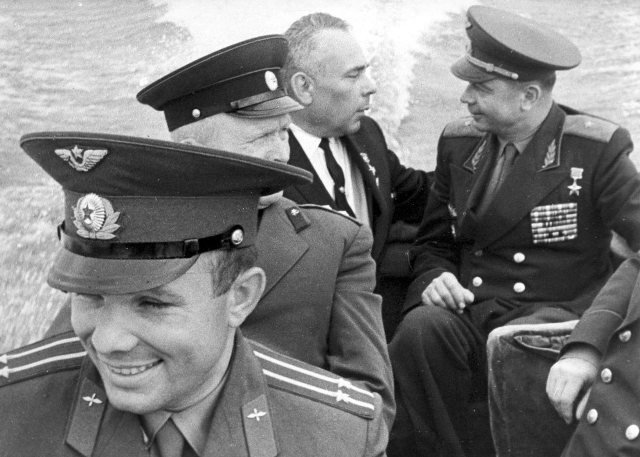
As you can see, Gagarin avoided talking about Stalin publicly, preferring to do away with the cliché about the Soviet people as the source of everything and everything in the USSR. As for the leader’s attitude to achievements, it is well known: of course, Stalin would not only have approved the cosmonaut’s flight, but he would have done no less to popularize it than Khrushchev did. Another question is whether such a flight would have taken place under Stalin earlier than it did in the United States. But we will never be able to answer it for sure.
From Calcutta the delegation went to Hyderabad, the richest city in southern India. Here the reception was less heated, but the program of meetings was also full. For the first time, Gagarin asked for mercy: the schedule was too grueling for him and his wife. However, the cosmonaut had enough energy to visit the famous Golconda, a fortified treasury built in the 13th century near the diamond mines.
On December 7, the voyage continued on the island of Ceylon (Sri Lanka). Because of heavy rain the program of the first day was crumpled, but locals still welcomed the cosmonaut on his way from the Ratmalan airstrip to Colombo. In the evening there was a reception for Sirimavo Bandaranaike, famous for being the first woman in the history of the world to hold the position of Prime Minister.
On December 8, the five-hundred-kilometer grueling ride through the countryside was successfully completed. On December 9, Gagarin spoke at Vidyalankar University and visited the city of Kandy in central Ceylon. On December 10, the delegation traveled by light-ngine plane to the northern provinces of the island, where rallies were held in the cities of Anuradhapura and Jaffna. Everywhere Gagarin was expected a magnificent reception, but Kamanin made a note in his diary, revealing some disappointment: “The meetings in Ceylon were the warmest, but the Governor General, and under his influence Bandaranaike, as well as in India, took measures to restrain the feelings of ordinary people towards Gagarin and the USSR. The press and radio covered our visit very extensively, but on Sunday the newspapers were almost silent about Gagarin, and today they put a picture of him with the American ambassador and wrote that he did not want to go to a number of places, although crowds of thousands of people were waiting for him there and money had been spent on holding meetings. The blame for these disruptions lies not with Gagarin, but primarily with the governor-general of Ceylon, to whom we have repeatedly argued that the program is overloaded and will be disrupted if it is not reduced. Because of an incomprehensible stubbornness, the program was not reduced, and it repeatedly failed, and the blame was pinned on Gagarin.
On December 11, there was a concluding press conference in Colombo at which Gagarin said, “The time will come, and one of the young Ceylonians, replacing a sarong with a space suit, will fly in the same crew as the Soviet cosmonauts into the vastness of the universe…”
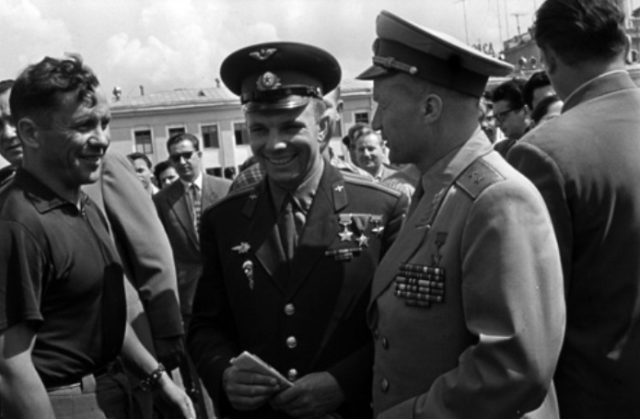
The next day, December 12, the delegation left Colombo for the Kingdom of Afghanistan, with a stopover in Delhi. At the airport in Kabul they were met by the Minister of Education, Ali Ahmed Popolo, and Lieutenant General Rezak Khan, Air Force commander and an old friend of Kamanin. Residents of the capital came out to greet the guests, and Kamanin was pleased to note that the country was becoming increasingly modern: many women were walking without burqas, young people were well dressed and kept loose, and there were many new houses and roads. On December 13, the delegation kept a busy schedule: laying a wreath on the tomb of the founder of the Nadir Shah dynasty, a visit to Minister Popolo, a town meeting, a gala dinner, a reception by Prime Minister Mohammed Aziz Dawud, and an audience with King Mohammed Zahir Shah. Addressing the cosmonaut, the king said: “We are very happy to welcome you, Mr. Gagarin, to our country. The people of Afghanistan welcome you as a man who has performed an unprecedented feat and as an envoy of our friendly Soviet Union. Our country is very poor, we have fallen behind in our development. There were many reasons for that, and the main reason is that we were under British rule for 150 years. But Afghans fought all the time for independence, and the Soviet Union provided invaluable assistance. And now relations between the Soviet Union and Afghanistan are the friendliest. More than three thousand Soviet specialists help us build the new Afghanistan. They work in very difficult conditions in the region of Jalalabad, Herat and the Hindu Kush mountains. Living and working conditions are hard for them, but always when I asked them, “How do you live, how do you work?” – they answered, “Good.” Yes, Soviet people know how to overcome difficulties. Your first space flight is the brightest proof of that. The situation is difficult now, the imperialists are exerting sensitive pressure on us, but we believe in the strength of our people and our friends. Say hello to the Soviet people and the Soviet government, we are very grateful for the help that is being given to us. Thank you very much for visiting our country.”
On December 14, Gagarin gave a lecture at the military academy, then visited the Kabul Historical Museum and the reservoir in the Karga region created by Soviet specialists, and in the evening held a concluding press conference.
Toward nightfall a telegram arrived at the embassy demanding a series of speeches in Tashkent: Sharaf Rashidovich Rashidov, first secretary of the Central Committee of the Communist Party of the Uzbek SSR, obtained permission from Moscow for Gagarin to stop in the republic’s capital for a day. Though Gagarin and his companions were very tired, we had to agree with the decision of the party leadership.
On December 15, the IL-18 with the delegation landed in Tashkent, after which the travelers were taken to Rashidov’s dacha, where a gala dinner was held. Then Gagarin spoke at the Alisher Navoi Theater to the elite of the city and the republic. They did not stay overnight, and after dinner immediately left for Moscow.
Afterwards Lieutenant-General Kamanin made a remarkable note:
“Physically Yura is healthy and does not complain about anything, but he is very nervous about additions and changes in the programs of meetings. He is weighed down by speeches, while meetings without speeches and, especially, meetings at the table, he likes and sometimes drags them out himself. Even after the incident in Crimea, he did not give up drinking altogether. In half a month he drank only 2-3 times, and that was 1-2 shots each. But the unpleasant thing is that he drinks with apparent pleasure and in the appropriate environment can easily “drink too much. I don’t want to be a prophet, but it seems to me that over time he will drink, and drink heavily. Right now he is at the zenith of his fame, always in sight, constantly carrying a great deal of moral and physical strain, feeling that his every move is being watched. In another 1-2 years, the situation will change considerably, and then he will have notes of dissatisfaction”.

Kamanin’s fears are understandable, because Gagarin still appeared to him as a senior lieutenant, fresh from the Arctic Circle, and the antics in the Crimea did not set him up for an optimistic mood. But fortunately the lieutenant general was mistaken: manned cosmonautics became the main occupation for Yuri Alekseyevich for life, he simply had no time and desire to “drink heavily”, because he really wanted to fly to the moon.
In 1962, Gagarin’s foreign visits continued. On January 29, he flew to the United Arab Republic (UAR), which included Egypt and Syria, accompanied by a delegation. Arriving in Cairo, the cosmonaut was the usual center of attention, although here, unlike other countries, the military escorted him, which had an impact on the mode of meetings. For example, the first gala dinner was held at the Officers’ Club in Zamalik, where Gagarin was greeted by Air Marshal Mohammed Mahmoud Sidki, the chief of the Egyptian Air Force. The next day, an air parade took place in the city of Bilbeis, which ended with a group of fighter planes flying by, writing the cosmonaut’s initials in the blue sky: “YUG”. Then there was a rally in Port Said, the city that was destroyed during the 1956 Suez War. After a walk along the Suez Canal, the delegation returned to Cairo where Gagarin gave a lecture at the university, gave an interview for a TV channel and had time to enjoy a performance of the national dance group “Reda” at the People’s Theater.
On January 31 Gagarin toured the capital of Egypt, climbed the 180-meter tower in Cairo and, of course, spent several hours in the area of the Cheops pyramid. In the evening there was a government reception in honor of the first cosmonaut. Egyptian President Gamal Abdel Nasser presented Yuri Alekseyevich with the highest award of the country – the Order of the Nile, after which he proclaimed a salute to the Soviet people and the distinguished guest.
On February 1, Gagarin visited the Helwan textile factory in the morning, toured its workshops, and talked with the workers. In the afternoon there was a rally and a sports festival in honor of the opening of the Arab Youth Festival at the city stadium. Then I had to go to a reception hosted in Gagarin’s honor by Governor Salah Dasouhi. After giving a welcoming speech, the governor presented the guest with a large golden key to the capital as a symbol of friendship.
In his response, the cosmonaut said:
“After the Vostok flight, during a rally on Red Square, Nikita Khrushchev said that ‘every Soviet man was brought up in the spirit of socialist patriotism and at the same time he was generously ready to share his scientific wealth, his technical and cultural knowledge with everyone who was ready to live with us in peace and friendship’, The United Arab Republic is the fourteenth country I had a chance to visit after the space flight. My fellow cosmonaut-two Hermann Titov also visited a number of countries. Everywhere we readily talk about the paths that led us into space, about the creative work of Soviet scientists, designers, engineers and workers who made it possible for man to penetrate into the vastness of the universe. I am glad I could tell such stories here on the banks of the Nile in front of a people with a rich culture”.
Unfortunately Yuri was deceiving: his speeches were energetic, sometimes original, but lacking substance. As an officer he could not reveal secret information – as we remember, under the “top secret” label were all the rocket and spacecraft data, details about the problems of the flight, the team of astronauts, names of chief designers and many other things. Gagarin could not even talk about the real prospects of the Soviet rocket and space program, because all future projects were in one way or another related to military affairs. What could he “generously share” except speculation on the most general topics…?
On February 2, the delegation went on a trip to Egypt, Gagarin visited the construction of the high-altitude Aswan Dam, visited Luxor and Alexandria, where he was also presented with the golden keys of the city.
On February 4, the cosmonaut returned to Cairo and held his final press conference. An interesting historical fact: during the conference Gagarin was told that Gzhatsk people nominated him as a candidate for the deputy of the Supreme Soviet of the USSR. The same evening, there was a meeting with the Cairo intelligentsia in the premises of the Soviet Cultural Center. It was attended by local scientists and artists. The Arab poet Abd al-Rahman al-Hamisi read his poem “Gagarin in my village”, written on April 12, 1961, and gave the cosmonaut the original text written on papyrus: “In my village they asked: ‘Is Gagarin like all of us? Yes, he is just like all people – with two arms, two legs and a nice smile on his open Russian face. He is just like us, but he has enough courage for two worlds – our Earth and the entire universe.
February 5. Gagarin bid farewell to Cairo. Leaving the city, he visited El-Kobb Palace and made an entry in the guest book: “Leaving the hospitable United Arab Republic, I offer my sincere thanks to President Gamal Abdel Nasser, the government and the people of the UAE for the friendly welcome”. The same day the cosmonaut and his delegation flew to Ghana, a small country on the west coast of Africa, which had declared its independence from European colonizers in 1957. On the way, the IL-18 made a landing for refueling at the Idris airfield in Tripoli, the capital of the Republic of Libya. Here, Gagarin was greeted by prominent government officials and given an official invitation to visit them on the way back. By evening, the delegation arrived in Accra, the capital of Ghana. At the airstrip, Gagarin was greeted by local pioneers and then the motorcade drove to the center of the city, where the cosmonaut was met by jubilant citizens and President Kwame Nkrumah, who hosted a reception.
The next morning, February 6, the “Gagarin” delegation arrived in the Republic of Liberia. President William Tubman, who had invited the cosmonaut to visit, was not in the country. However, his absence did not interfere with the festivities: Secretary of State Rudolf Grimes presented Gagarin with an honorary order – the African Star on a large blue ribbon. Then, within a few days the delegation traveled through Liberia, which until then remained a “blank spot” for Soviet citizens: the cosmonaut visited the outskirts of the capital Monrovia, the mining operations of the port city of Buchanon, the territory of the Kpelle tribe with rubber plantations. On his last visit, Nikolai Denisov wrote:
“The tribe chose the Soviet cosmonaut as their honorary leader. Yuri Alekseyevich was given a spear and a robe sewn to his height in the form of a spacious robe of light, broad-striped fabric. ‘…’
Here in Gbarngba, a wilderness inhabited by native tribes, it was once more evident that news of the Soviet people’s remarkable successes in space exploration is of keen interest to all kinds of people. When the festivities celebrating Gagarin’s arrival subsided a little, the eighty-year-old, gray-haired Bassi Pamba, the oldest chief of the Kpelle tribe, took over for a good hour. He demanded from Yuri Alekseyevich a detailed story about the flight into space, about the structure of the Vostok. This talk, in which Gagarin tried to explain to the old negro what the orbit is, how a rocket takes the spacecraft to it, how weightlessness is, what exactly the difficulties of the space flight are, was delivered in three languages – Russian, English, and the one of twenty-eight negro languages spoken in Liberia by the Kpelle tribe.
We followed this conversation closely. Whenever Bassi Pamba did not understand something, he immediately interrupted the interpreters and asked questions. Their content showed that the old man was trying to penetrate deeper into the essence of the matter, he wanted to understand the question, which was certainly difficult for him. The workers of the Monrovia radio studio who were with us recorded this conversation on a tape recorder in order to translate it into several more languages and organize radio broadcasts for other tribes.
As you can see, Gagarin was not only involved in promoting Soviet achievements, but also engaged in educational activities in the broad sense, introducing the tribes of Liberia to modern scientific concepts. However, we cannot judge how adequately he was understood there.
On February 11, a delegation left Liberia for Greece. On the way, as promised, stopped for a day in Tripoli: we visited the city and met with representatives of the government. On February 12, the cosmonaut was welcomed by the citizens of Athens – the capital of the Hellenic Republic. Immediately after his arrival Gagarin toured the city, toured the Acropolis and talked to activists of the Greek-Soviet Friendship Society, among whom the poet Kostas Varnalis, a Lenin Prize winner for strengthening peace between peoples, stood out. Relations between the USSR and Greece at the time were strained, so the visit, despite the plans of the Society, was short and took place within the capital. On February 13, Gagarin met with public figures and the mayor of Tsoukalh awarded the cosmonaut with a gold medal and declared him an honorary citizen of Athens.
On February 14, the delegation flew to the island of Cyprus, which had only recently gained independence as a republic, but had not yet entered a period of bloody war between the communities. Gagarin spent two days there, but, as sources testify, was too exhausted by the previous journey, so he took part only in government events: on February 15, President Makarios III (Archbishop Makarios, Michael Christodoulou Mouskos) hosted a solemn breakfast; in the morning the cosmonaut performed at the Nicosia City Stadium; in the afternoon he arrived for a rally in Famagusta, where he stayed until morning. On February 16 at a solemn meeting at City Hall, Yuri Alexeevich was elected honorary citizen of Famagusta and was given the symbolic keys to the city. Before leaving the cosmonaut also had time to stop by the city of Larnaca. In the evening the IL-18 with “Gagarin’s” delegation flew to the Soviet Union.
Another period of travel was over. Unfortunately, Kamanin remained in Moscow, so no details about the domestic side of the new voyage have survived. But even circumstantial evidence is enough to conclude: the first cosmonaut was again stretched to the limit and could not immediately return to his current work in the CPC.
Lieutenant General Kamanin was worried about the situation, in his diary he wrote: “A dangerous situation is forming: we are engaged in speeches, and the Americans – in space flights. We must move forward without overestimating our results or belittling the efforts of our rivals.”
Undoubtedly, Gagarin’s trips were important for the popularization of Soviet space achievements and the very idea of extraterrestrial expansion. In addition, they enhanced the experience of Yuri Alekseyevich, who was learning diplomatic etiquette and finding common ground with government officials of any country on the fly. However, the further away, the more the importance of the trips declined. Gagarin and Titov repeated virtually the same things on the subject of cosmonautics, and the political consequences of the XXII Congress were of little concern to anyone outside the USSR.
Only new triumphant launches could bring back the space initiative, but the program of spacecraft missions was constantly changing, approved schedules were shifted, and interdepartmental intrigues began. In this difficult situation Sergei Korolev managed to achieve a unique flight, which again showed the superiority of the OKB-1 design bureau over its American competitors.
